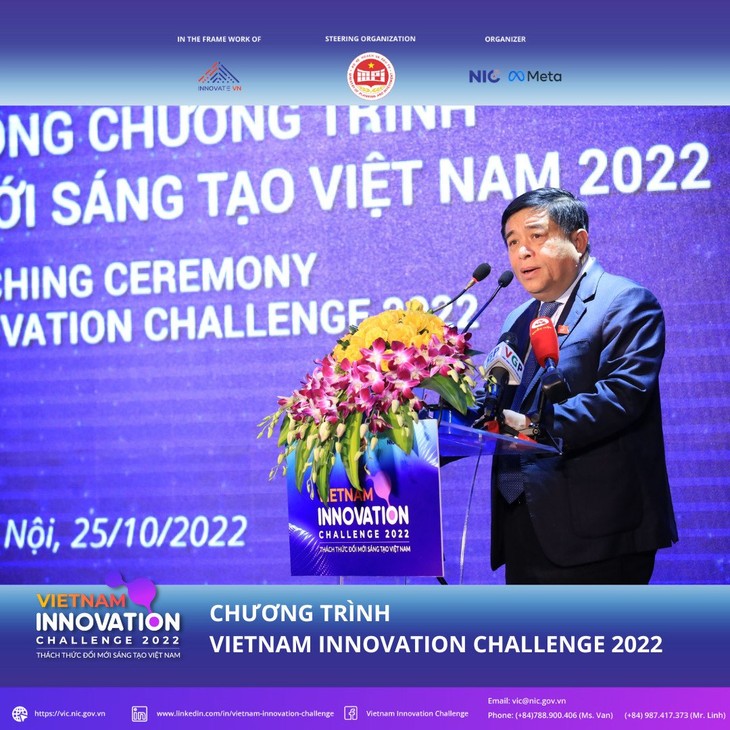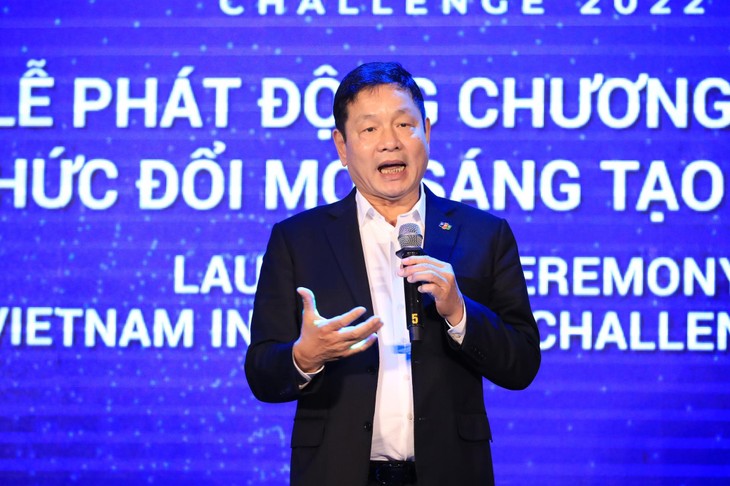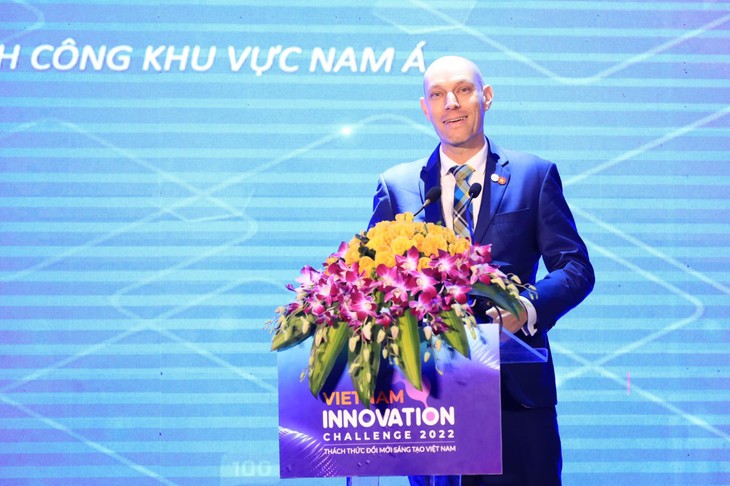(VOVWORLD) - If Vietnam doesn’t promptly make full use of scientific and technical advances from Industry 4.0 and doesn’t promote innovation and digital transformation, the strategic goal of making Vietnam a developed high-income country by 2030 will not be achieved, according to participants at the recent launch of 2022 Vietnam Innovation Challenge. This week’s Digital Life will bring you the opinions of a few experts on what Vietnam needs to boost its innovation and digital transformation process.
 Minister Nguyen Chi Dung (Photo courtesy of NIC) Minister Nguyen Chi Dung (Photo courtesy of NIC)
|
Vietnam has set an ambitious goal for itself: to be a developing country with a modern industrial base and upper-middle income status by 2030, and a developed, high-income country by 2045.
Minister of Planning and Investment Nguyen Chi Dung said at last month’s launch of the 2022 Vietnam Innovation Challenge that to achieve that goal, Vietnam will need science, technology, innovation, and digital transformation.
“Vietnam has gained lots of achievements over the past 35 years of renewal, but has faced many challenges from both inside and outside. The country has determined that its best path is to take advantage of Industry 4.0,” said Dung.
He insisted that this has been affirmed in all documents from the Party’s Resolution 13 to the national 10-year socio-economic development strategy and the Politburo’s resolution on making the most of the Fourth Industrial Revolution, while the National Assembly and the Government have designed strategies, plans, and specific action programs to implement these resolutions.
Once specific thing was establishing the National Innovation Center (NIC), which might be ready for operation as early as next March.
Covering an area of 35ha in Hoa Lac Hi-Tech Park in Hanoi, the NIC will be the largest facility in Vietnam supporting domestic and international innovative enterprises and providing laboratories, offices, and workplaces for experts and scientists.
The question now is how will the center operate? Obviously, it will require the involvement and coordination of every economic sector, especially high-tech firms.
 Truong Gia Binh, FPT Chairman and CEO (Photo courtesy of NIC) Truong Gia Binh, FPT Chairman and CEO (Photo courtesy of NIC) |
Truong Gia Binh, Chairman and CEO of Vietnam’s tech giant FPT Corporation, said FPT considers involvement in the process its responsibility and a great opportunity.
“Vietnamese young people and startups should be more proactive in innovation. I believe that digital transformation and technology are the only way for us to grow and develop,” according to Binh.
He added, “As innovation is the foundation for sustainable development, FPT is ready to become a mentor for innovative projects, support the connection with investment funds around the world, and support market access.”
Viettel Military Industry and Telecoms Group, another pioneer in high-tech industry and core technology in Vietnam, also feels it has a responsibility to work with domestic and foreign entrepreneurs to promote innovation and Vietnam’s digital transformation.
 Tao Duc Thang, Viettel’s Chairman and General Director (Photo courtesy of NIC) Tao Duc Thang, Viettel’s Chairman and General Director (Photo courtesy of NIC) |
Tao Duc Thang, Viettel’s Chairman and General Director, underscored the importance of each individual in the group striving to innovate in their daily work so as to create positive changes and spread them to other industries and fields.
According to the Viettel leader, innovations are not necessarily something big. They might be ideas just to make certain daily tasks easier.
Thang took a clerical worker as an example, adding if she thinks her job is just to keep records, she’s wrong. She can use digital technology to digitize the documents or, at a higher level, come up with initiatives to further the business’s digital transformation.
“As a pioneer in technological innovation and in creating a digital society for Vietnam, we’re confident we can create ecosystems for business development, 4G and 5G technology infrastructure, and IOT platforms for apps to manage cars, the environment, or water. We’re a pioneer in jointly addressing social issues," said Thang.
 Dr. Rafael Frankel, Meta's Director of Public Policy for South and Southeast Asia Dr. Rafael Frankel, Meta's Director of Public Policy for South and Southeast Asia (Photo courtesy of NIC)
|
To enhance innovation and achieve successful digital transformation, self-awareness is important, because innovation is a regular, continuous process that helps individuals develop their creative capacity.
But realizing big, innovative ideas requires resources, including open and flexible policies, financial resources, and manpower, as well as support from domestic and international experts.
Dr. Rafael Frankel, Director of Public Policy for South and Southeast Asia of the Meta Group, affirmed that Meta wants to help boost innovation in Vietnam and drive the digital economy growth here so that the government can reach its Industry 4.0 goals and so that Vietnam can be a regional leader in the digital economy in the coming years.
Since 2019, Meta has provided digital skills training to over 580,000 people in Vietnam, to over 64,000 SMEs in Vietnam, and to over 25,000 students in Vietnam.
“The Innovation Challenge is the next step on that path, where we are trying to partner again with the government, businesses, and communities to help Vietnam develop the technologies that can drive innovations and digital economy growth for the next generation,” Dr. Rafael Frankel affirmed.
In its efforts to boost innovation, Vietnam has been receiving support and commitments from major economic corporations such as Viettel, Vingroup, and FPT.